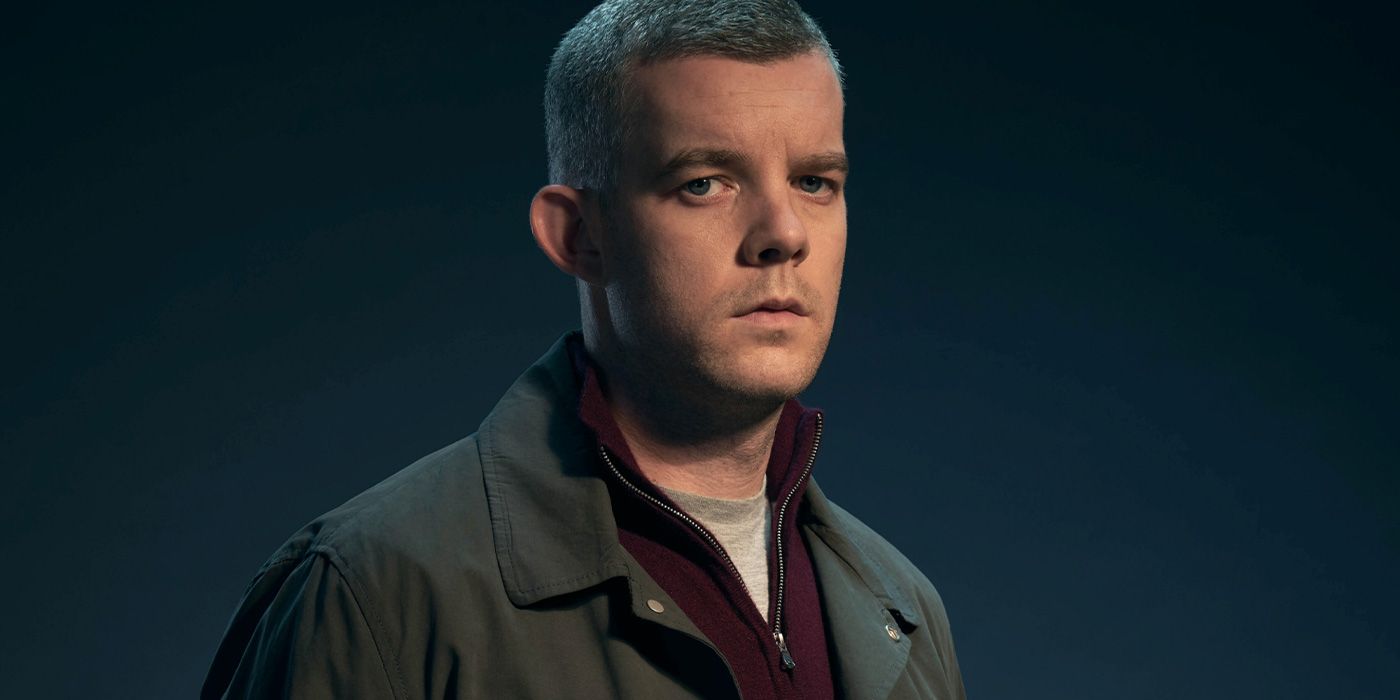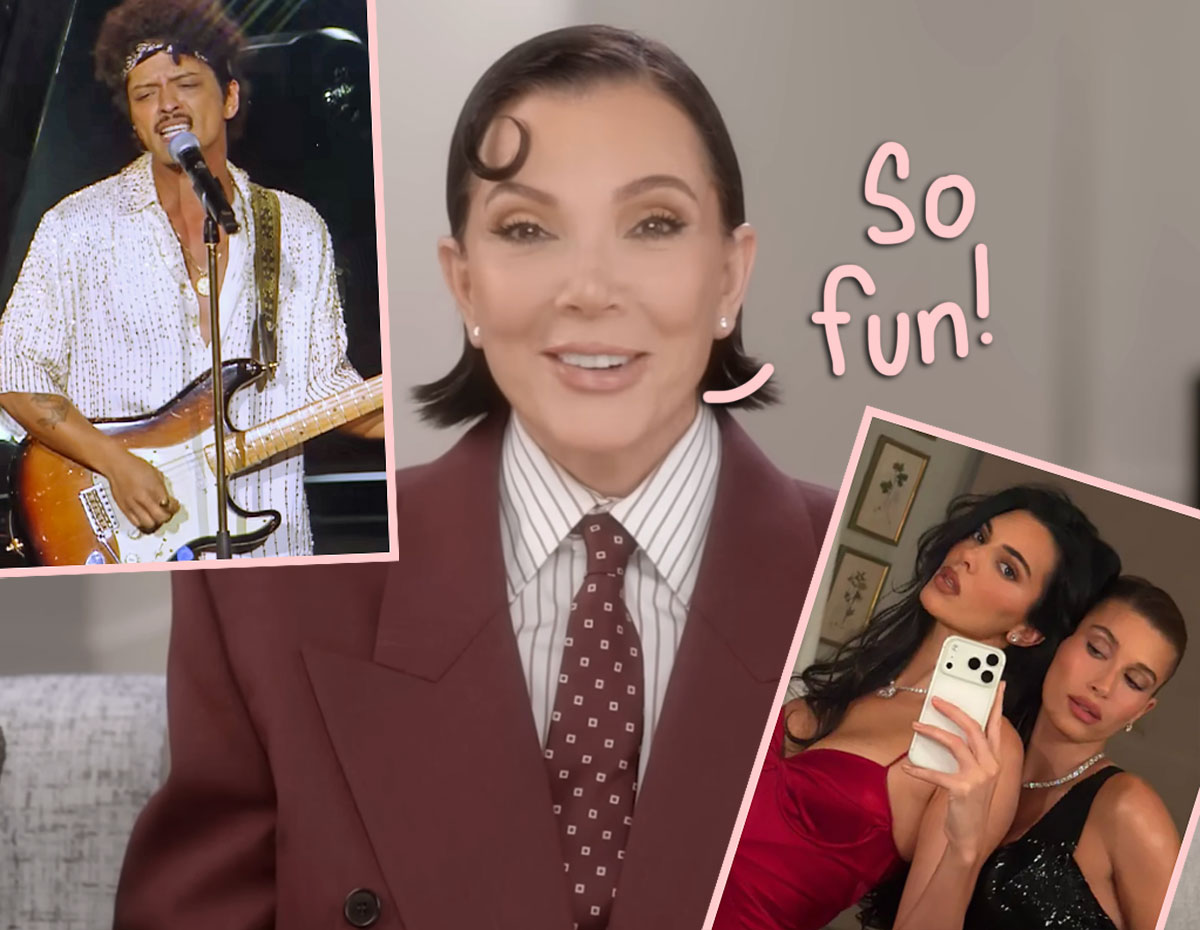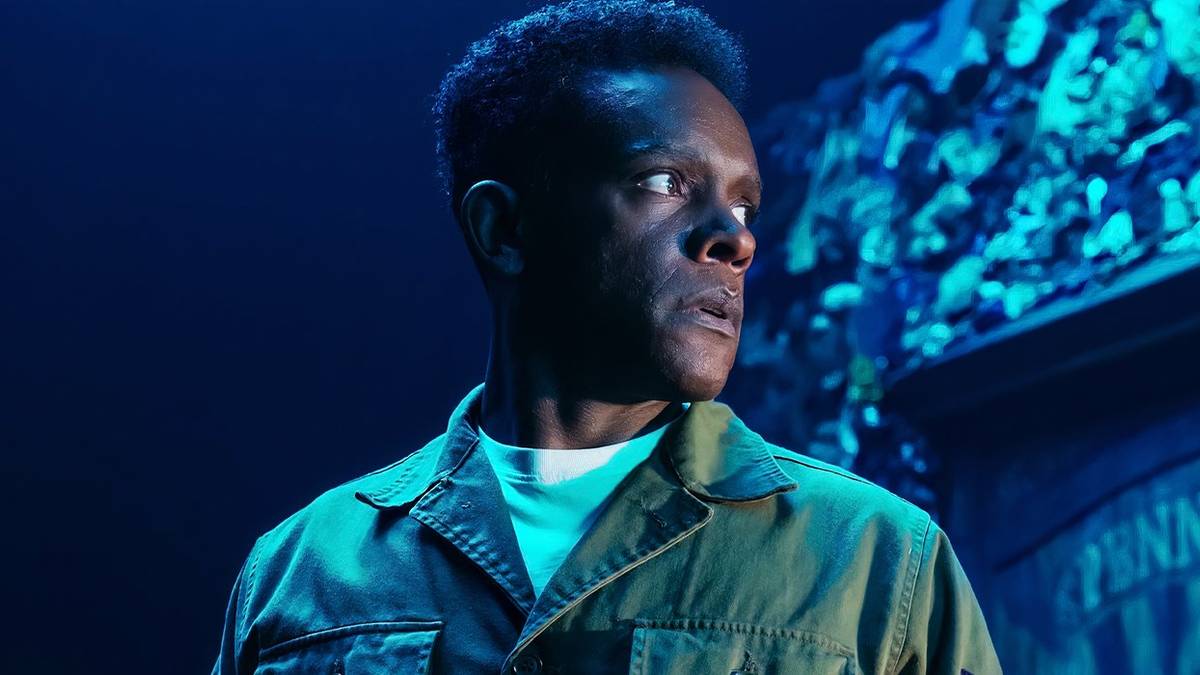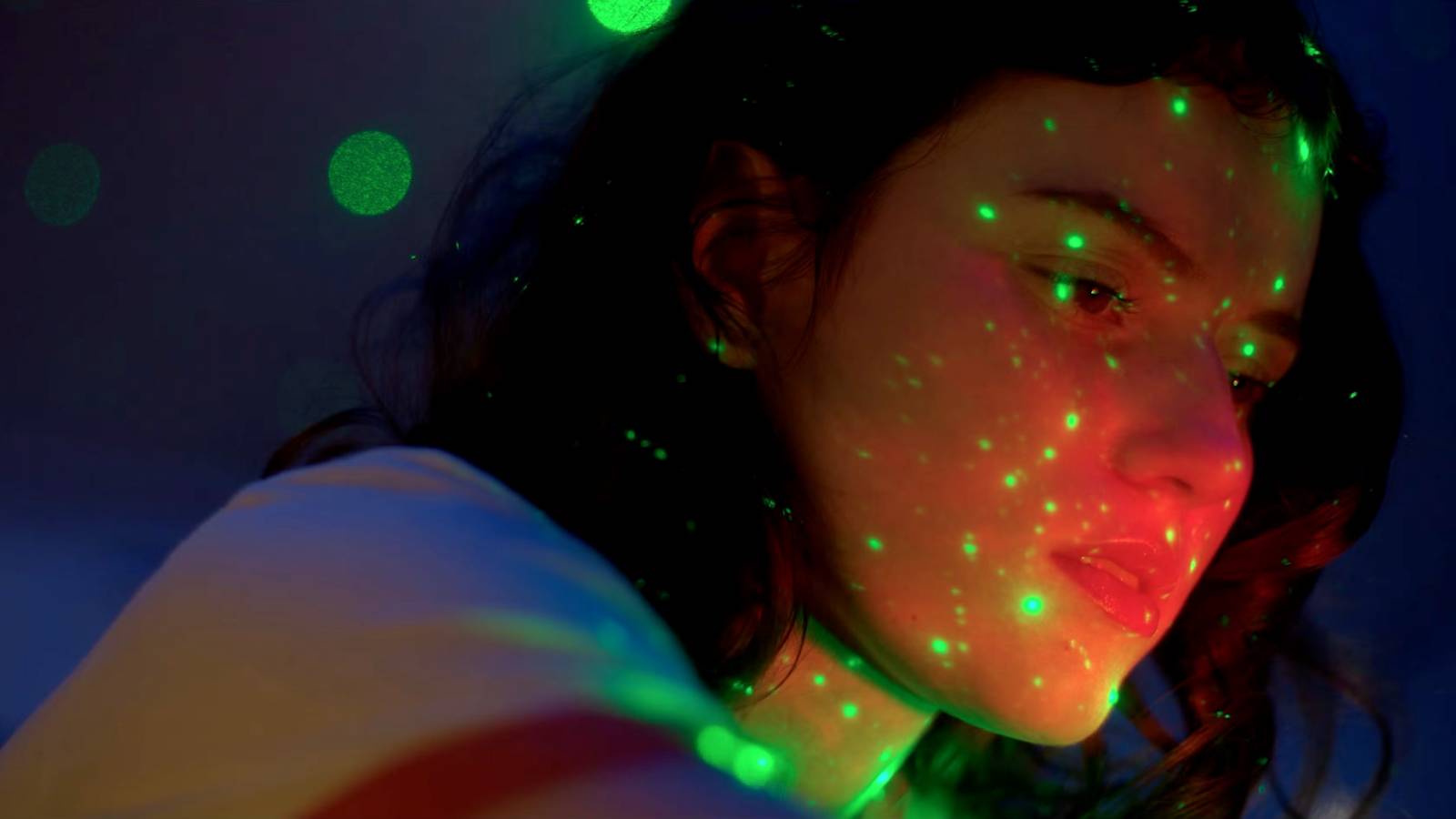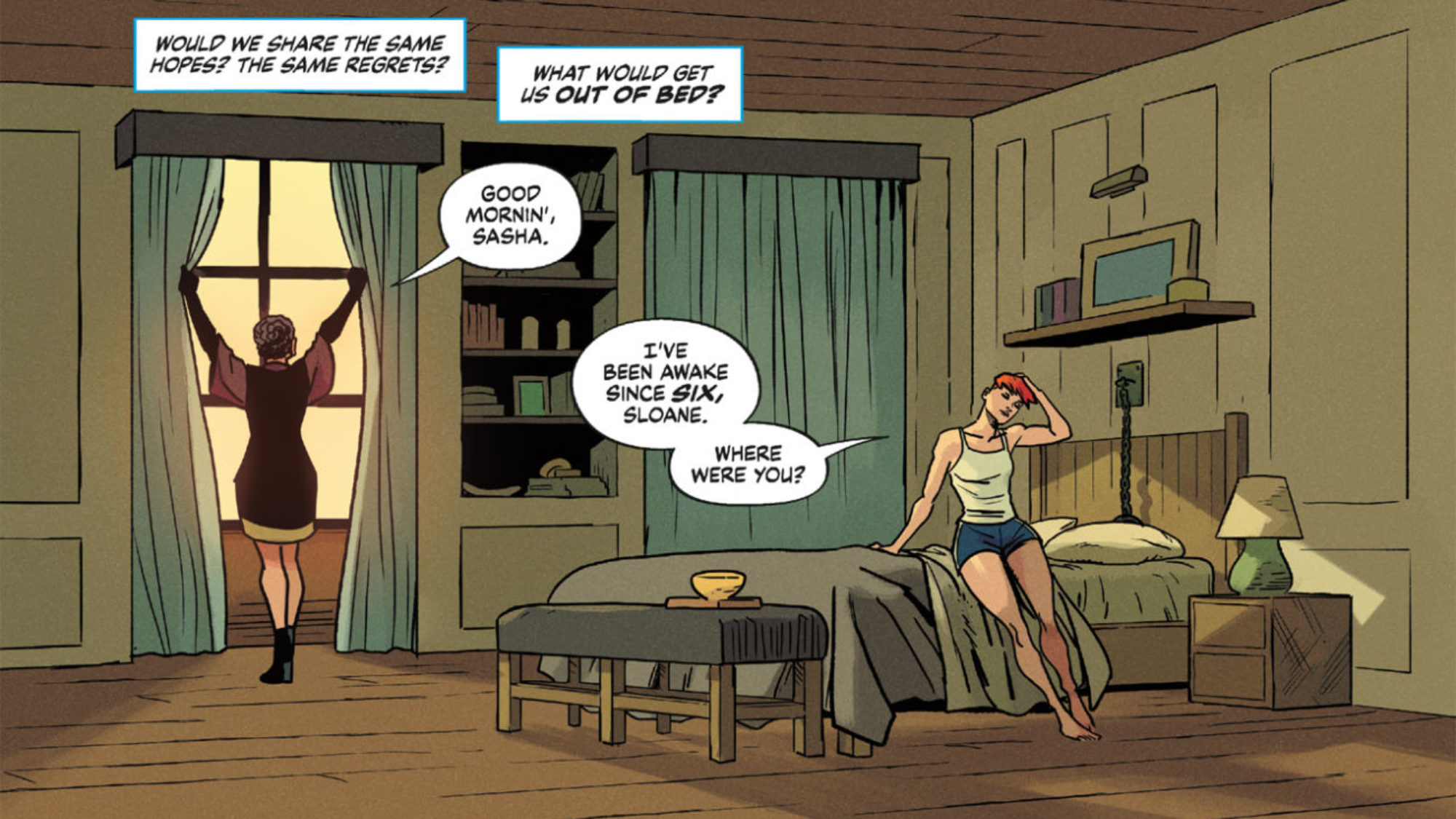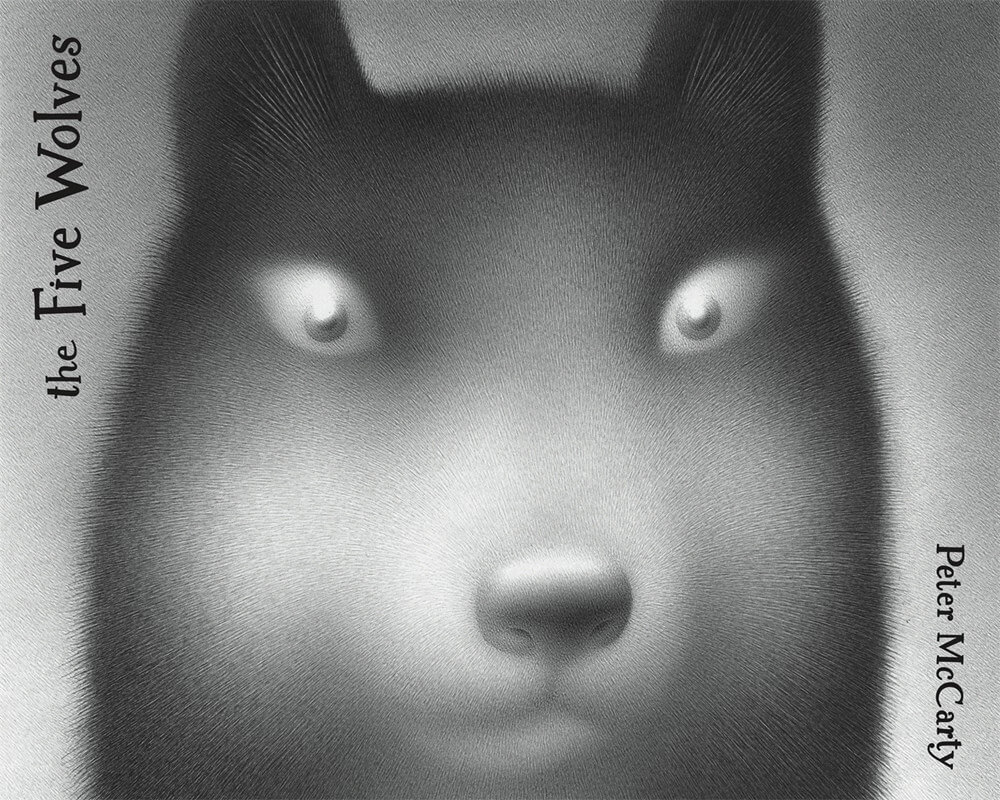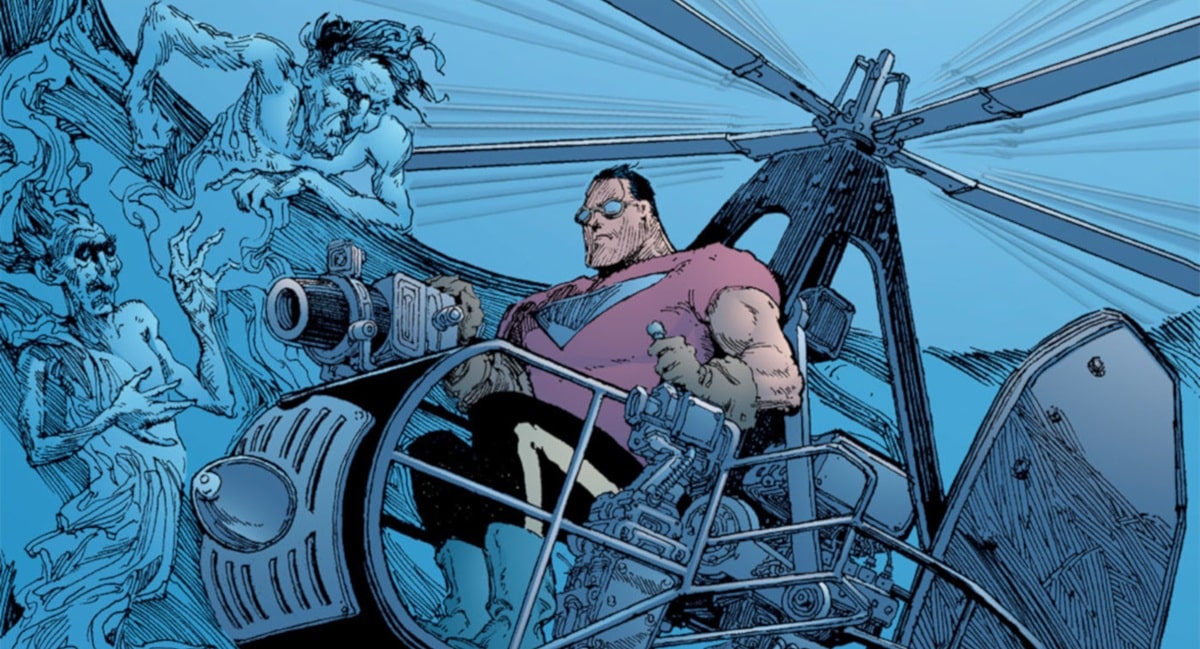[Editor’s note: The following contains major spoilers for The Fortress.]
The Big Picture
- ‘The Fortress’ unfolds in dystopian 2037 Norway amid a deadly pandemic, revealing the consequences of isolation.
- Russell Tovey discusses his exciting and timely involvement in ‘The Fortress,’ exploring the challenges of filming during a pandemic.
- Nature’s uncontrollability is highlighted in the series, emphasizing the futility of building walls to separate and control people.
Set in 2037, the dystopian Norwegian drama series The Fortress, available to stream on Viaplay on Amazon, follows Charlie Oldman (Russell Tovey), a refugee from the UK trying to migrate to Norway with his wife and baby at a time when they’ve cut themselves off from the rest of the world during a deadly pandemic. When an outbreak shows the self-sufficient paradise just how ineffective a wall really is, resources become depleted, policies are questioned, and desperation makes people do things they never knew they were capable of. And through it all, Charlie just wants to survive and figure out where he and his daughter can fit into what comes next for the world.
During this one-on-one interview with Collider, Tovey talked about why he felt honored to be included in a project like The Fortress, what he found interesting about this pandemic story, how he approached this character, how nature can’t be controlled, no matter how hard we might try, the biggest challenge of the shoot, and how he felt about his character’s outcome. He also discussed why Looking is such a special project for him, his best memories of Being Human, and why he’s excited for audiences to see Plainclothes.
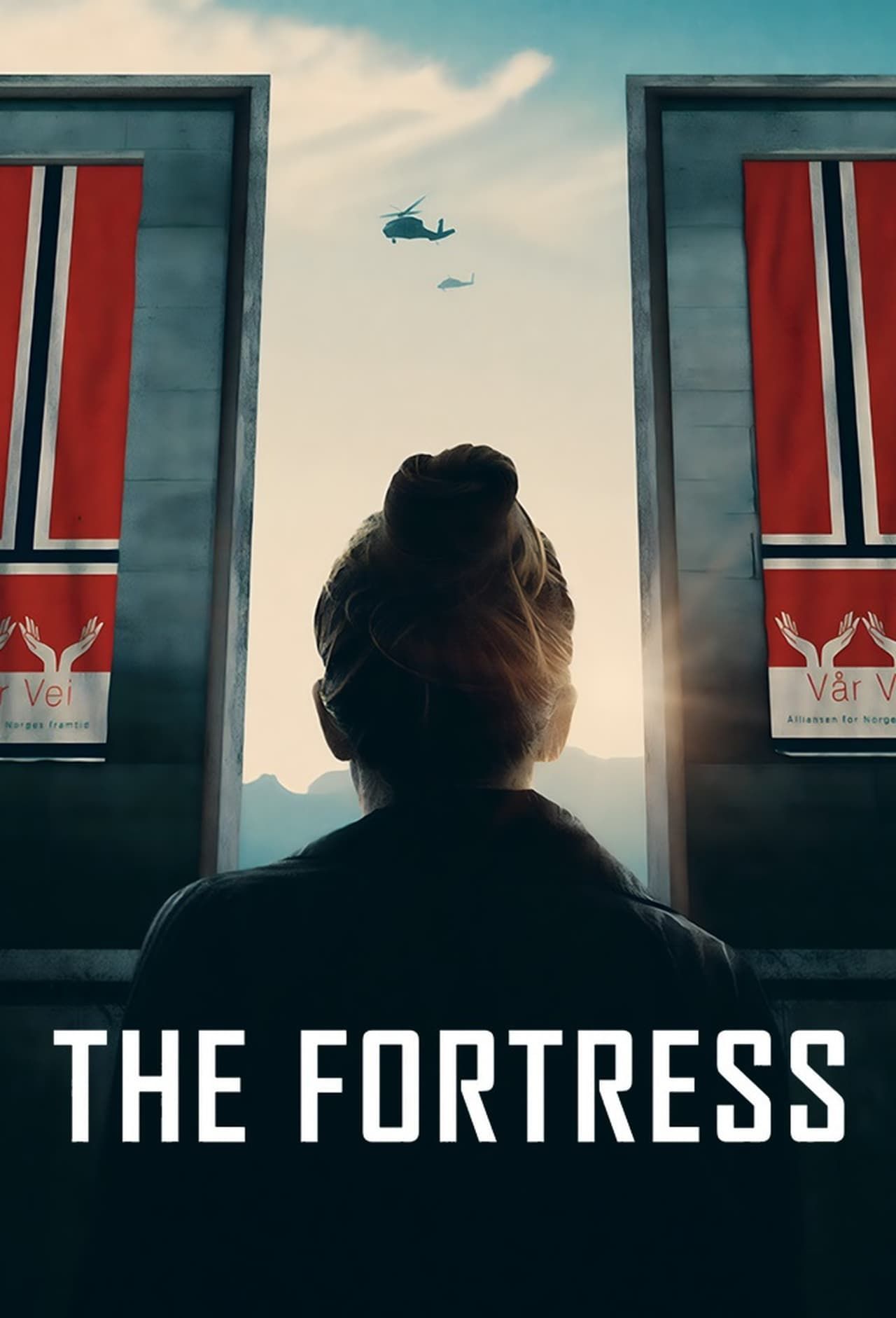
The Fortress (2024)
In 2037, the people of Norway thrive in a self-sufficient paradise behind an enormous wall. However, this utopia transforms into a prison when a deadly pandemic erupts, trapping the inhabitants inside. As the crisis unfolds, the residents grapple with their confinement and the harsh reality that their protective barrier now isolates them from the world.
- Release Date
- April 12, 2024
- Cast
- Tobias Santelmann , Selome Emnetu , Russell Tovey , Dominic Allburn , Rebekka Nystabakk , Nina Yndis , Hallvard Holmen , Elvinas Juodkazis
- Main Genre
- Sci-Fi
- Seasons
- 1
Collider: Could you ever have imagined yourself doing a Norwegian drama series? That seems very random.
RUSSELL TOVEY: That’s what’s so beautiful about what we do. You end up being attached to these projects and doing these projects that take you somewhere you never thought you’d go. For me, the biggest honor is being invited and included in another country’s industry. To be brought into this foreign-speaking television show is such an honor and so exciting, for any actor. But to be on a project like this, it was just a real honor. And to shoot it, at the time, it felt very timely, and it still is timely. I don’t wake up thinking, “Oh, I want to go and do a TV show wherever,” but you jump at the chance when they turn up.
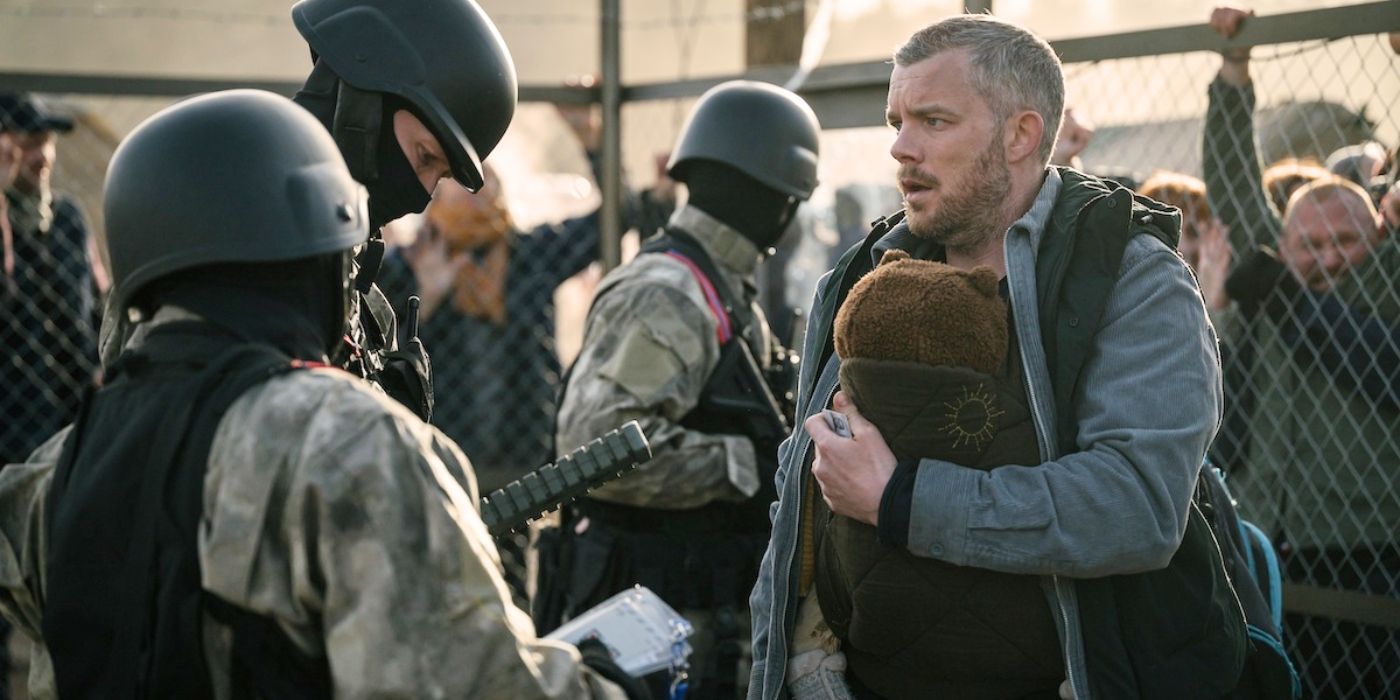
Related
The Apocalypse Arrives in Norway in New ‘The Fortress’ Trailer [Exclusive]
The series stars Tobias Santelmann, Russell Tovey, and more.
Did you feel like there were any major differences that you noticed in the approach to shooting this series in Norway?
TOVEY: We were shooting during COVID times, and we were shooting a show about a pandemic, so that was different to what one is used to when it comes to filming. But no, it actually felt very similar. The difference that I have found is working in the States. They have craft service in America. When I first come across that, I was like, “This is mind-blowing. This is like a wedding buffet that’s there 24 hours a day. They get you whatever you want. This is heaven.” And then, you come back to the UK and you’ve been incredibly spoiled and you’re like, “Where’s our craft service?” And they’re like, “There are cups of tea over there, Make yourself one.” And you’re like, “Oh, okay, fine.” That’s the big difference.
Russell Tovey Reflects on the Eerie Real-Life Similarities in ‘The Fortress’
When this project came your way, telling the story of a deadly pandemic at the time that we were experiencing one in real life, did you wonder if you really wanted to live through that twice? Was it therapeutic, at all, to sort through your feelings about it, and how society and politicians handle it?
TOVEY: It’s all those things. I was really invested and fascinated in seeing what art came out of the pandemic, at the beginning. We were all thinking that so much writing was going to come out of this scenario, however big or small the ideas for all those would be, and this is one of the first things that came my way. I’d shot Years and Years pre-pandemic, which was a show that covered the same sort of things that ended up happening in the real world and that was, in itself, was mind-blowing. But then, this came up at the time when it was happening and it felt timely, I guess is the word to use, and it felt exciting to be living through something, and then portraying it on screen. It’s like if you wanted to be a method actor, the work was being done for you. You didn’t really have to try that hard.
I wanted to play this character. I wanted to portray this man who was very average, a nice person, very content with his life, thought everything was sorted, and in the flip of a switch, it was taken away from him. Suddenly, he becomes a refugee trying to survive with his wife and child. The emotion that’s involved in that, and the strength of love and how that can be pushed, at the end of the day, everybody wants to survive, everybody wants to live, and everybody wants to love and feel love. That was my draw on this character. The world’s gotten even more of a mess and these shows don’t feel dystopian anymore. They feel like real life. They feel like documentaries, and that’s terrifying. But also, from an actor’s point of view, it’s really a real privilege and honor to be able to tell these stories, and for people to connect to them and hopefully take comfort in them while being entertained.
Before COVID, we would have all just thought this seemed like some far-off fantasy that could never happen. It’s amazing how something like that can change your perspective so much.
TOVEY: There’s something about when you watch a show that feels familiar that is comforting. Even if it’s a discomforting scenario and you’re going on this really terrifying journey with all these people, there is something where you can relate to it and go, “Well, at least I’m not on their journey. But I do know this world. I understand these regulations and I understand these fears, but at least I’m not them.”
When it comes to character, do you always start in the same place? Is there something that you like to start with, and then build out from there, or is it always different?
TOVEY: It’s always, “Where do they speak from? Where is their energy?” For Charlie, the way he spoke, I wanted him in the bottom of his chest. He’s a man, and he’s a physical man. As the show went on, he started to breathe higher and higher because of the anxiety. I set that up myself, as something that I was going to explore. The walk is very important, but I think it’s where their energy sits and, tonally, where the voice sits. That normally comes instinctively when you start reading the lines. The lines tell you the cadence of speech, the way that they articulate themselves and the energy that they use when they’re connecting to other people. The text normally does a lot of that work for you, and then you’ve just got to use your instincts and also cherry-pick from your own biography. Someone just asked me what it’s like to play this character with a wife and child, and I just imagine love, people I love, and what that would be, if it was one of them. And then, you put that through the lens of the character. All we can do is draw on our own experiences to tell stories, and then elevate them to become these other narratives.
I actually really appreciated how this series shows that you can build a wall and isolate yourself, set all these strict rules, keep everyone that you choose away, and maybe it will last for a while, but it’s still just going to blow up in everyone’s face. Do you feel like that also helps make things more realistic?
TOVEY: It’s what Jeff Goldblum says in Jurassic Park, that nature finds a way. We can try to control it, but the forces are bigger than us and always have been. It’s about grasping the enormity of the history of the universe, and then how ridiculous it is that we’re here anyway, how evolution even allowed us to be here, and how insignificant we all are. You just start seeing how irrelevant we are, at times, or how much control is being pushed on or put on us, and then how it just becomes unacceptable. Nature can’t be controlled. I think that’s what this show is saying. You put these walls up, you try to keep people segregated, and you try to stop things from happening, but eventually, it’s bigger than us. We have huge egos. Our egos are massive. Huge egos and low self-esteem are the issue with everything.
The Practical Sets Built for ‘The Fortress’ Created a Level of Realism that Didn’t Require Acting
The scenes where you’re passing through the gated area with the guards, and you’re holding your daughter and there are all the people outside the gates, what was that like to shoot? Is there less acting required in situations like that?
TOVEY: It’s really wonderful when they have enough budget to fill it with supporting actors and background actors, and to build incredible sets, because it’s immersive and you’re in it. None of that was green screen. That was all set up and a lot of the actors were really going for it. It was all around you. You just play off that energy. All you can do, as an actor, is go on energy and instincts. If that energy is being given to you, fed to you by what the other actors around you are doing, and not just the supporting actors, but any actors and anybody you work with. That’s why we do it. That’s why I do it. It’s just that feeling, whatever that feeling is. I can’t put my finger on it, but it’s something otherworldly that allows you to access something else. It’s brilliant. There’s nothing better. They spent days building those refugee sets and really thinking about how to set the shots up. It was terrifying. Most of the time, everyone was in masks. You had these people in uniform and you couldn’t really see their face. If you went up and said hello, they’d have a chat with you, but they stood there with these guns, watching you. If you really allow yourself, which we do, you believe it. That’s an amazing place to work from, as an actor.
There are so many moments in this that your character is lucky to survive. He’s mentally, physically, and emotionally beaten down. What was the most challenging moment to shoot and why?
TOVEY: There were tons. There was plenty. The days when you’ve got stunts, stunt days involve rehearsal days for health and safety and security, obviously, and those days are long because it’s about the shots, and the safety of the other actors and the crew, especially if you’re using weapons. Those days, on any project, are the most challenging. A fight could last a minute, and you might spend five days pulling that together. It’s really important because if it doesn’t work, it doesn’t work. I had a lot of things that were being done to me, and that I had to do to other people. Those are the hardest things. Russell, by nature – talking to myself in the third person – is not a violent person and not someone that has to fight to survive, on a daily basis, or engage in confrontation with people. I’m not fighting over food, thank God. Those scenes really do push you, as an actor and as a person, but you commit to them because that’s the character’s reality. His reality deserves respect, and his reality needs to be told honestly.
As you read these scripts and you went on the journey with this story, from his wife being accused of being patient zero, to then realizes he’s essentially the guy who can turn things around, what was it like to learn about that full circle moment and how he was right at the center of it? What was your reaction to the ending?
TOVEY: Well, I felt very happy for Charlie that he lived. I feel broken-hearted that, in the process, there were people lost along the way that meant a lot to him. What is his life now? What is the world now? How can you carry on living after all of this? We all love stories where an average person becomes a hero. Zero to hero is an entertainment trope that’s gold because it allows us all to dream. “Could I be a hero?” Well, we all have the ability to change people’s lives for the better, just by being nice to other people, but can I be a hero? You watch films and TV shows about people who win the lottery or whatever, and it’s that chance. Charlie is someone who’s lived his life by chance without even realizing who he was to people, and he ends up becoming the hero. I love that. That’s cool.
‘Looking’ Will Always Hold a Special Place in Russell Tovey’s Heart
I first became aware of you and your work, and first interviewed you, with Being Human. We’ve talked about a few other projects in the years since then, but I tend to always circle back to Looking because somehow that show still feels necessary and needed. You’ve talked about how it’s one of your absolute favorite things ever, and it really seems like that’s the case for everybody that was involved with it. So, is that one of those projects and is that a character that you’d like to revisit, any time an opportunity were to arise?
TOVEY: Over anything else I’ve ever played, yeah. That project was so special. The fact that we’re talking about it 10 years on, and a new generation of queer people have discovered it, and it’s having a resurgence on TikTok, it feels even more relevant than ever. It’s a matter of timing. If that show came out now, I think we’d be doing it for the next 10 years of our lives. Every single person involved in that changed because of that project, and every single person involved in that would want to go back to that world and that group of friends and hang out with them. It’s one of the only shows I’ve ever done where I’m in it, but I watched it as a fanboy and I’d get excited about the next episode. I’d be like, “Oh, my God! What is Dom doing? What is Patrick doing? What is he doing? And Richie …. oh, my God! He should be with Richie. Why is he with Kevin? I’m playing Kevin, but I fancy Richie. I get it.” I just think about how many actors in that were just so brilliant. I’d love to bring it back, and I know that Andrew Haigh would want to bring it back, and Michael Lannan. If HBO reads this, or someone else, and they go, “Yeah, bring it back, let’s do it again,” there’s an audience for it now. It was a really strange time that it came out. It connected, but it didn’t get enough steam behind it. Now, we’re still talking about it, and that’s so special. I feel nothing but pride and a deep, deep love for Looking.
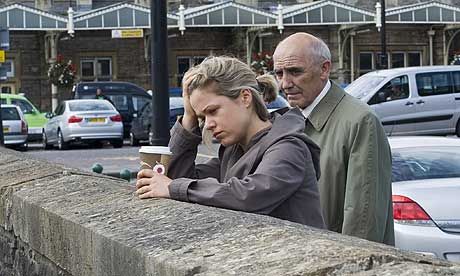
Related
Aidan Turner, Russell Tovey, Lenora Crichlow and Sinead Keenan Interview BEING HUMAN
an interview with Aidan Turner, Russell Tovey, Lenora Crichlow and Sinead Keenan for BBC America’s BEING HUMAN. They talk season two and three.
I still see the UK version of Being Human as one of those benchmarks of a genre that shows what you can do and how you can push things that are unexpected. How do you feel about that series and what you were able to do with it? What are your best memories from your time on that show?
TOVEY: There are so many. That show succeeded because the original concept wasn’t sci-fi. The original concept was a flat share, or a house share, between a guy that was a sex addict, someone who was painfully agoraphobic and shy, and someone who had rage issues. It was about throwing them all in a room and seeing how they were gonna connect. And then, Toby Whithouse, the writer, had this amazing idea of going, “Okay, if he has rage, maybe once a month, he becomes a werewolf. Let’s try that. And then, she’s so painfully shy, maybe she’s actually so shy that she’s a ghost. And then, with Mitchell, he’s a sex addict and he can’t stop, but what if he’s actually bloodthirsty and he wants to stop, but he just cannot stop.” And then, it just wrote itself. I remember being like, “Oh, my God, what are you doing, Russell? I’m playing a werewolf? What?” He’s a werewolf, but he’s not a werewolf. The show was sci-fi and genre, but again, it was about love. It was about people trying to survive. It was about connecting, and being empathetic and kind, and accepting of others, and wanting to make sure other people felt safe and seen. That’s why so many people connected to it. They connected to it on a sci-fi level, but they connected to it because it was about friends who loved each other and would do anything for each other and wanted to survive.
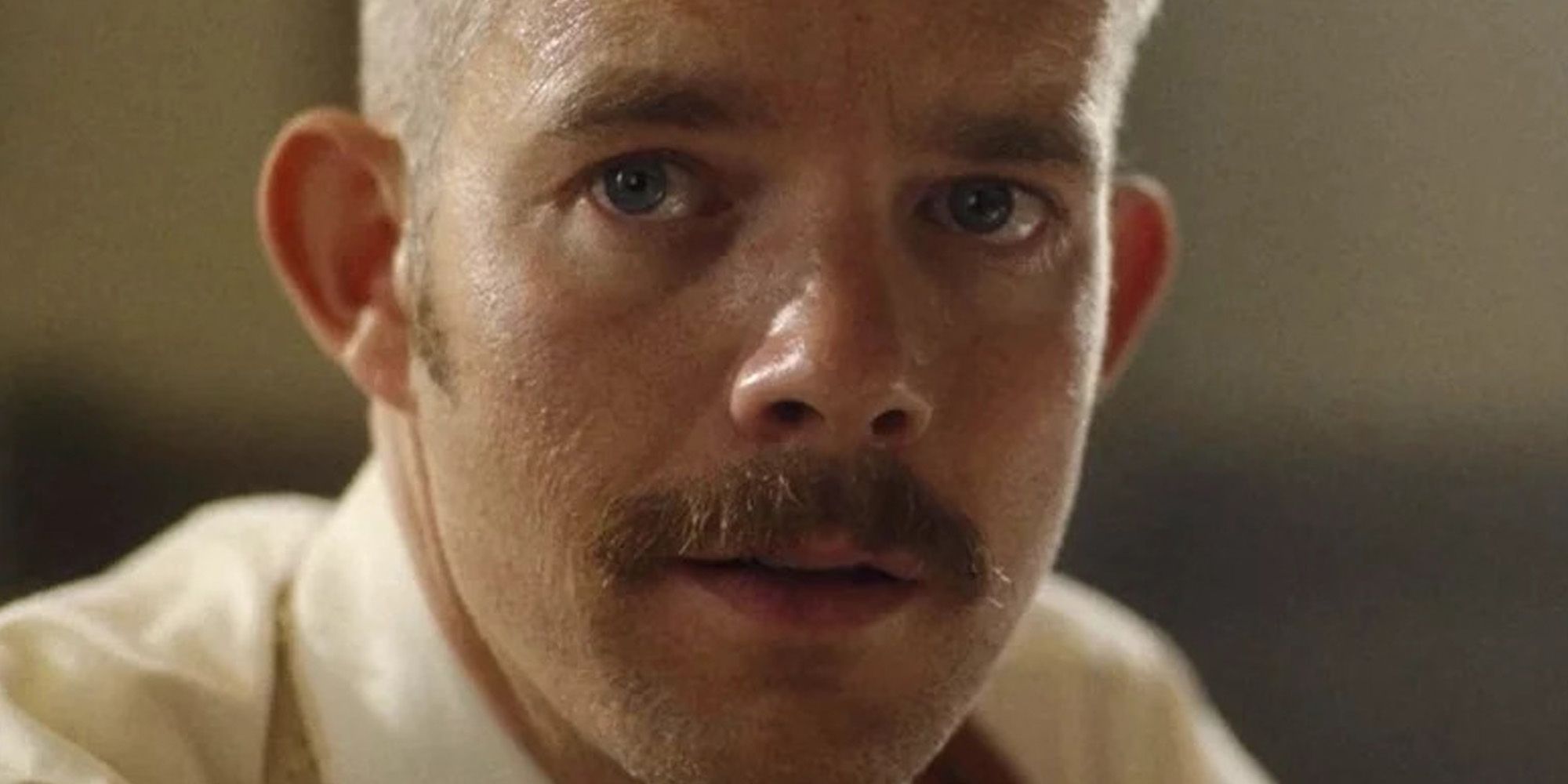
Related
Russell Tovey and Tom Blyth Strike a Pose in ‘Plainclothes’ Set Images
The ’90s-set drama also stars Amy Forsyth and Christian Cooke.
You also have Plainclothes, which sounds like a fascinating story. What was it about that project and character that most appealed to you? What was your reaction to the script, the first time you read it?
TOVEY: Oh, I loved it. I thought it was very smart and moving. I’d never been to Syracuse, and I’d always wanted to go to Upstate New York. I love working in America. I’ve spent years of my life filming or doing plays in New York, and that appealed to me. The character was a really interesting guy. I liked the timing of it, the period of the nineties when I was coming of age, and getting to play an adult in that period, with the state of America, the state of queer rights, what’s changed, and how everything is cyclical. This film will come out, and it’s set in the nineties, but it will feel incredibly timely. It resonates with the now. It’s a period piece, but it’s incredibly contemporary, which is terrifying, in itself. The script is a really beautiful one. It’s a first-time writer/director (Carmen Emmi), who’s wonderful. And I loved working with Tom Blyth. I think he’s a superstar. If you speak to anyone else on that project, that was a four-week shoot and we all bonded so closely. If it even picks up one percent of the energy of compassion and love and dedication, and how much we all wanted it to work and how much we committed to it, it’s gonna be wonderful. I’ve been so lucky on so many things. It was perfect energy, synergy, and casting. There was so much love on it. It was amazing. I’m really, really, really excited to see what comes of that when it comes out.
The Fortress is available to stream on Viaplay. Check out the trailer:
Watch on Amazon Viaplay

